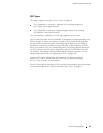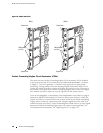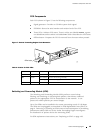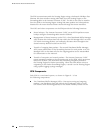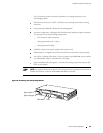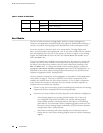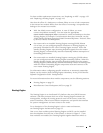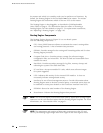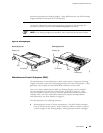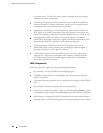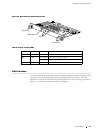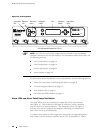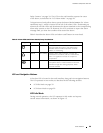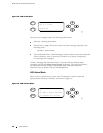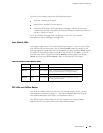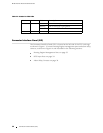
Hardware Component Overview
document that depict the Routing Engine. These differences do not affect Routing
Engine installation and removal or functionality.
For specific information about Routing Engine components (for example, the
amount of SDRAM), issue the
show chassis routing-engine command.
NOTE: If two Routing Engines are installed, they must both be the same version.
Figure 9: Routing Engine
J
U
N
IP
E
R
N
E
T
W
O
R
K
S
L
A
B
E
L
T
H
IS
S
ID
E
1596
Extractor clip
PC card slot
RESET
HD
P
C
C
A
R
D
Extractor clip
PC card slot
LED
Extractor clipExtractor clip
LED
Routing Engine 333 Routing Engine 600
Miscellaneous Control Subsystem (MCS)
The Miscellaneous Control Subsystem (MCS) works with its companion Routing
Engine to provide control and monitoring functions for router components. It also
generates a clock signal for the SONET/SDH interfaces on the router.
One or two host modules (paired MCS and Routing Engine) can be installed
into the midplane from the rear of the chassis, as shown in Figure 3. Only
one host module is active at a time, with the optional second host module in
standby mode. For more information about host module interdependence
and redundancy, see Host Module on page 22.
The MCS performs the following functions:
Monitoring and control of router components—The MCS collects statistics
from all s ensors in the system. When it detects a failure or alarm condition,
it sends a signal to the Routing Engine, which generates control messages
Host M odule 25



